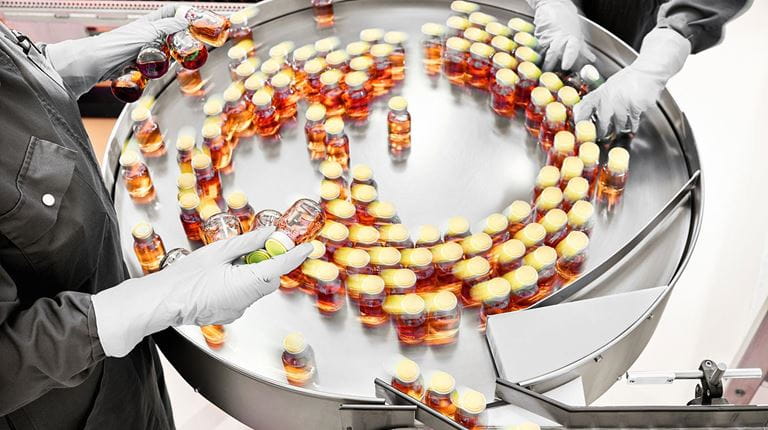 )
)
R&D Capabilities
Excellence in Research & Development
CSL Behring's mission is to discover, develop, and deliver our innovative therapies that improve the patients' quality of life. Our scientists and researchers are recognized for their contributions to developing breakthrough medicines that have the potential to help millions of patients worldwide.
We are grateful to the patients, volunteers, and researchers that participate in the clinical trials for testing our potential biotherapies. All contributions have helped better our understanding of diseases.
CSL Behring's R&D capabilities are focused in three major areas:

Plasma Fractionation
CSL Behring’s clinical research activities make products available to patients worldwide and identify novel therapeutic uses for plasma proteins.
As a leading manufacturer and developer of therapeutics derived from human plasma, CSL Behring is committed to maintaining the highest product safety standards and to continually improving manufacturing effectiveness. CSL Behring's research programs are focused on developing novel plasma proteins with improved efficacy and enhanced convenience.

Recombinant Technology
We have extensive experience in the production, clinical development and launch of recombinant coagulation factors.
We are also focused on the development, production and testing of novel monoclonal antibodies (MAbs) to treat inflammatory diseases (CSL324), hereditary angioedema (CSL312) and target fatty acid metabolism (CSL346).
In collaboration with Momenta Pharmaceuticals, we are also developing recombinant Fc multimer proteins to control inflammation associated with autoimmune diseases.

Gene and Cell Therapy
Through the acquisition of Calimmune Inc., CSL is now focused on the development of ex vivo hematopoietic stem cell (HSC) gene therapy which has the potential to offer a significant advantage to patients suffering from currently incurable genetic diseases.
The acquisition of Calimmune introduced CAL-H/CSL200 to our pipeline, an HSC gene therapy for the treatment of sickle cell disease, which complements our current product portfolio and deep expertise in hematology.
The technology also has the potential to be used in treatments for a wide range of other rare diseases that would complement our business, including those within the company’s current product portfolio.
R&D Capabilities
These capabilities manifest themselves in the following therapeutic areas:

Immunology
Our world-leading immunoglobulin (Ig) franchise is the cornerstone of the immunology therapeutic area. Our efforts in this area focus on bringing trusted products and technologies to serve patients with a range of serious immunologic and neurologic diseases, including Primary and Secondary Immunodeficiencies (PID and SID) and Chronic Inflammatory Demyelinating Polyneuropathy (CIDP). We are optimizing patient experience and convenience through more flexible ways to dose and administer our existing intravenous and subcutaneous plasma-derived products.

Hematology and Thrombosis
CSL Behring remains focused on easing the burden of care and improving the lives of patients with rare bleeding disorders. Additionally, we are undertaking exciting research and development efforts to explore new indications in hematology as well as novel therapeutics in hemostasis and thrombosis. We have made major advancements in hemophilia A and B in recent years with the launches of our internally developed family of novel recombinant coagulation factor medicines. Our hemophilia research strategy is based on maximizing the value and performance of our existing coagulation therapies and developing new protein-based therapies to treat bleeding disorders and increase the quality of life for patients.

Transplant
Despite the remarkable advances in solid organ transplantation reflected by improved patient and graft survival rates, the treatment and management of solid organ transplant recipients remains a complex area of modern medicine. Organ transplant recipients are required to take life-long immunosuppressive medication to prevent their own immune systems from rejecting the donor organ (allograft). While current standard of care is very effective in the prevention and treatment of acute rejection, chronic rejection remains a high unmet medical need and is responsible for most cases of allograft failure. Our plasma-derived C1 Esterase Inhibitor (C1-INH) product is currently being investigated in a clinical trial to treat one form of rejection (antibody mediated rejection) in kidney transplant recipients.

Respiratory
Chronic respiratory diseases impose an enormous burden on patients and society and are a leading causes of death and disability worldwide. To address this need, CSL is investigating new clinical treatments for respiratory diseases using our plasma-derived immunoglobulins and proteins and novel recombinant monoclonal antibodies.

Cardiovascular and Metabolic
Cardiovascular and Metabolic diseases is one of our newest therapeutic areas and is testimony to our commitment to remain at the forefront of innovation. Within this therapeutic area, our focus is on improving and extending the lives of patients with atherosclerosis and diabetes.

